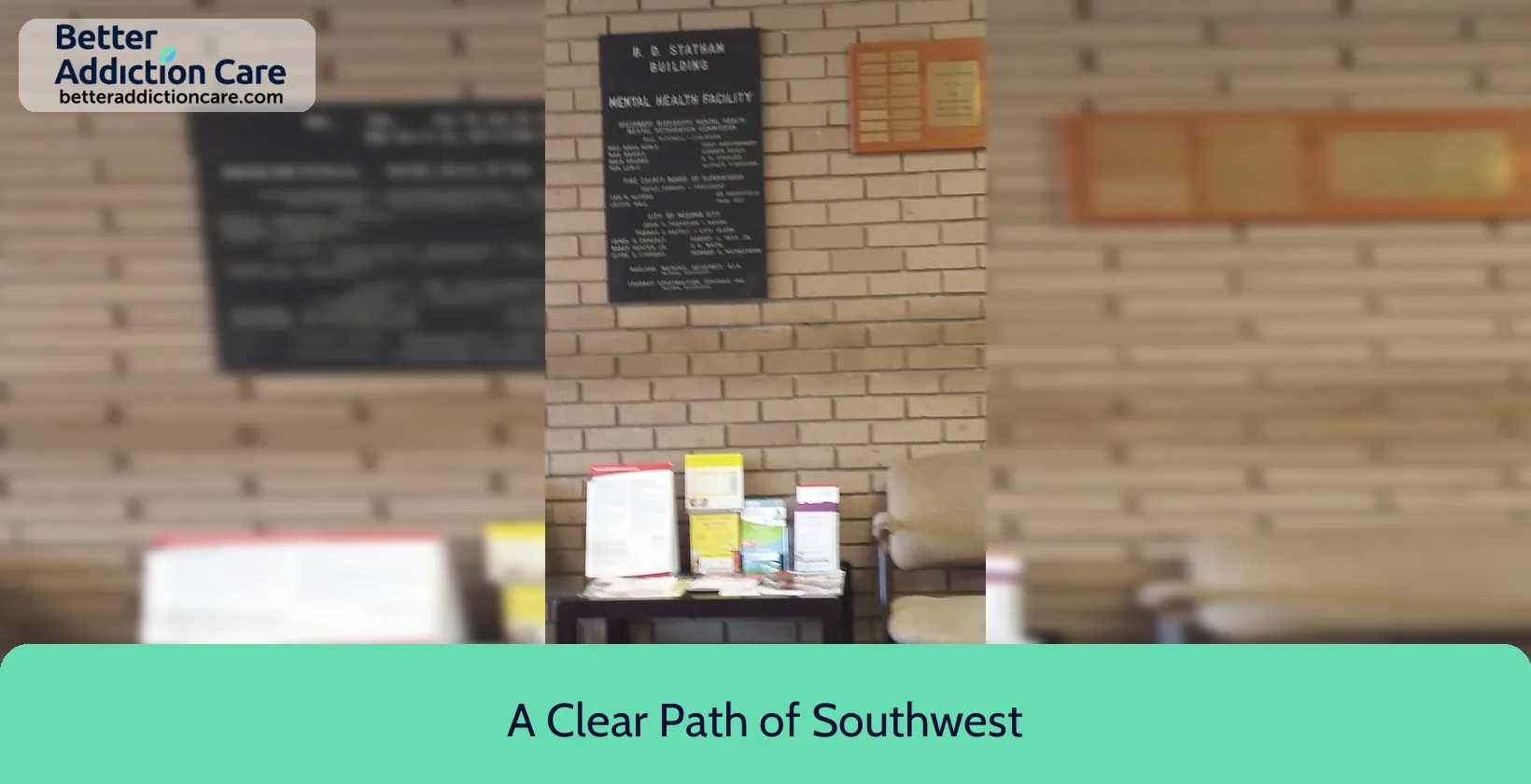A Clear Path of Southwest Mississippi Behavioral Health
Overview
A Clear Path of Southwest Mississippi Behavioral Health is a mental health treatment center for people seeking treatment near Jefferson County. As part of their treatment modalities for recovery, A Clear Path of Southwest Mississippi Behavioral Health provides couples/family therapy, group counseling, and cognitive behavioral therapy during treatment. A Clear Path of Southwest Mississippi Behavioral Health is located in McComb, Mississippi, accepting cash or self-payment for treatment.
A Clear Path of Southwest Mississippi Behavioral Health at a Glance
Payment Options
- Cash or self-payment
- Medicaid
- Medicare
- State-financed health insurance plan other than Medicaid
- Private health insurance
Assessments
- Screening for tobacco use
- Comprehensive mental health assessment
- Comprehensive substance use assessment
Age Groups
- Children/adolescents
- Young adults
- Adults
- Seniors
Ancillary Services
- Intensive case management
- Case management service
- Chronic disease/illness management
- Court-ordered outpatient treatment
- Education services
Highlights About A Clear Path of Southwest Mississippi Behavioral Health
6.65/10
With an overall rating of 6.65/10, this facility has following balanced range of services. Alcohol Rehabilitation: 8.00/10, Drug Rehab and Detox: 6.00/10, Insurance and Payments: 6.00/10, Treatment Options: 6.61/10.-
Alcohol Rehabilitation 8.00
-
Treatment Options 6.61
-
Drug Rehab and Detox 6.00
-
Insurance and Payments 6.00
Treatment At A Clear Path of Southwest Mississippi Behavioral Health
Treatment Conditions
- Mental health treatment
- Alcoholism
- Substance use treatment
- Co-occurring Disorders
Care Levels
- Outpatient
Treatment Modalities
- Couples/family therapy
- Group counseling
- Cognitive behavioral therapy
- Integrated Mental and Substance Use Disorder treatment
- Telemedicine/telehealth therapy
Ancillary Services
Languages
- Sign language services for the deaf and hard of hearing
Special Programs
- Clients with co-occurring mental and substance use disorders
- Persons 18 and older with serious mental illness (SMI)
Get Help Now
Common Questions About A Clear Path of Southwest Mississippi Behavioral Health
Contact Information
Other Facilities in McComb

6.62
DISCLAIMER: The facility name, logo and brand are the property and registered trademarks of New Directions PSR, and are being used for identification and informational purposes only. Use of these names, logos and brands shall not imply endorsement. BetterAddictionCare.com is not affiliated with or sponsored by New Directions PSR.

